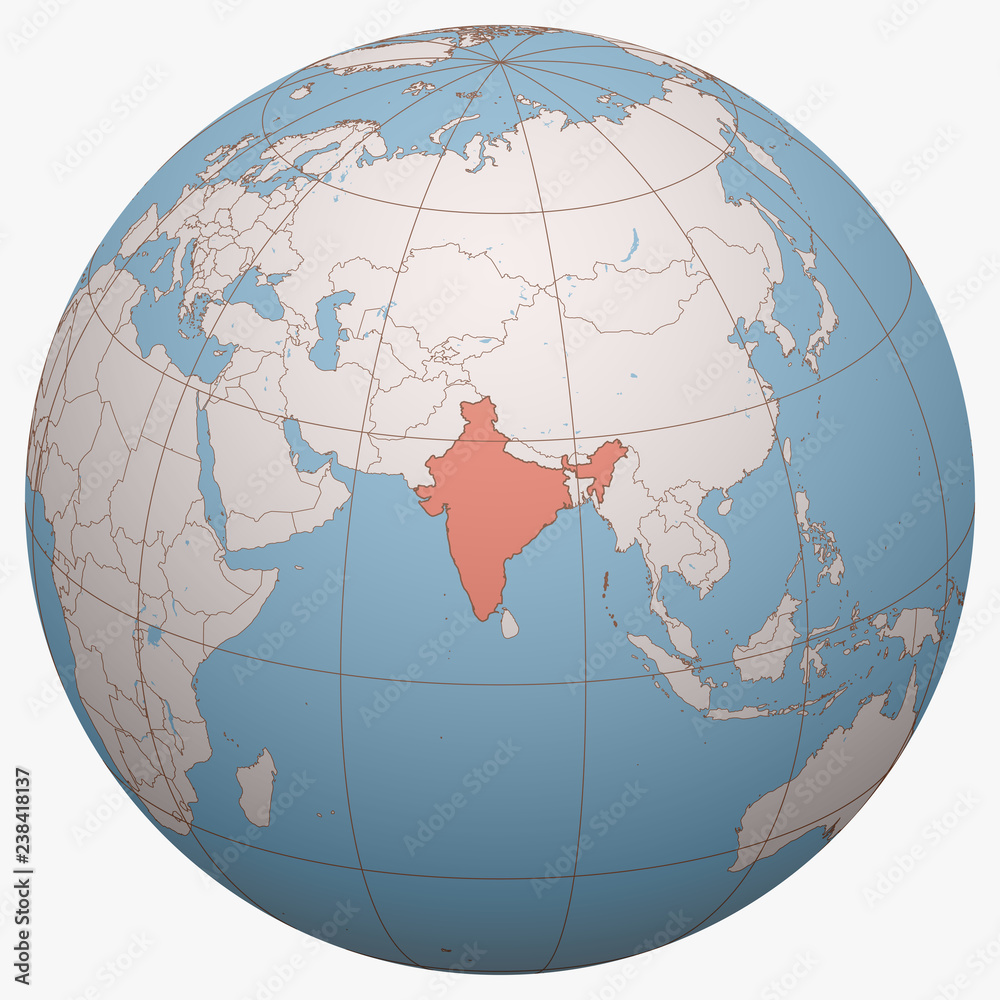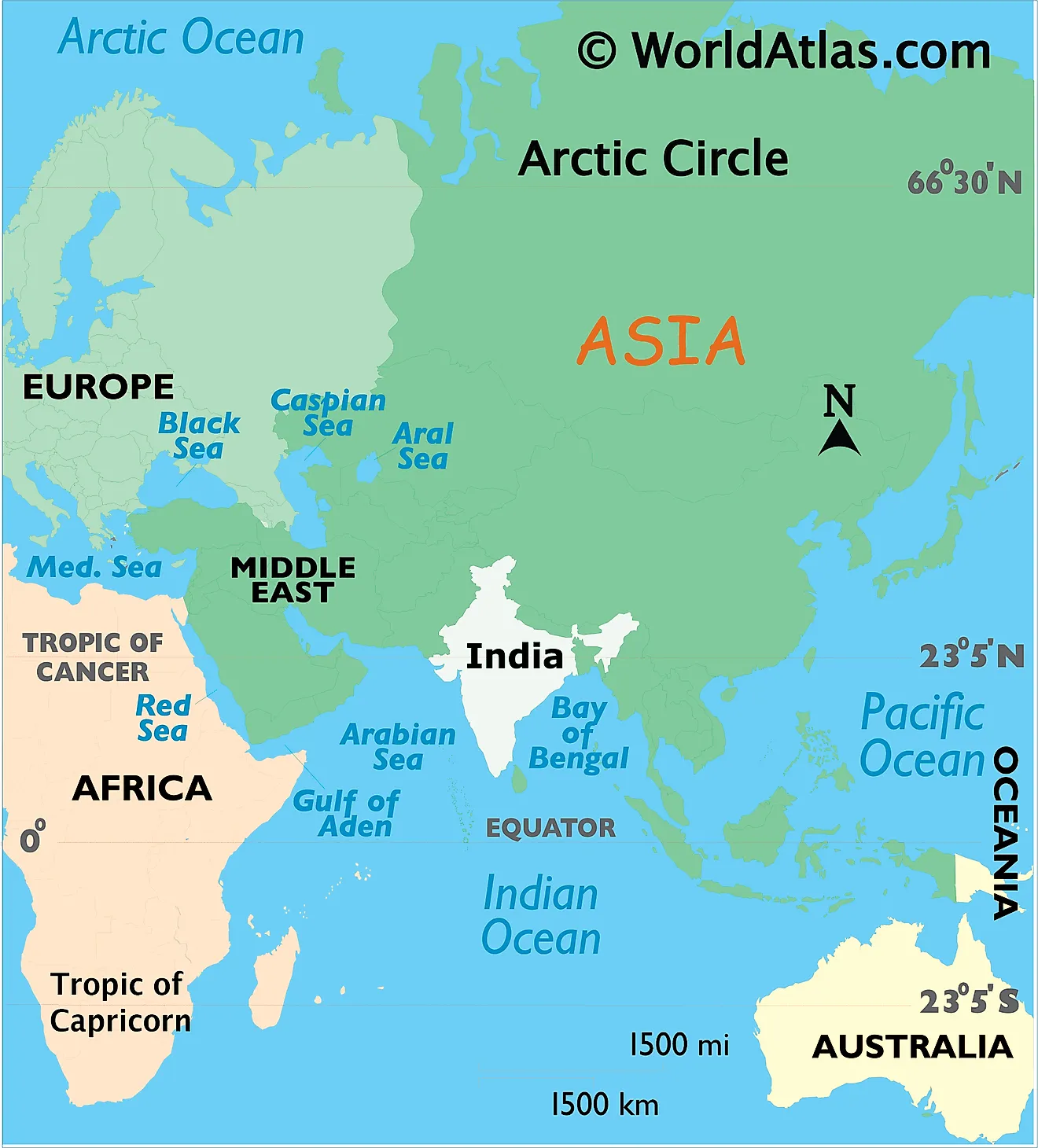India On The Globe: A Land Of Diversity And Significance
India on the Globe: A Land of Diversity and Significance
Related Articles: India on the Globe: A Land of Diversity and Significance
Introduction
With enthusiasm, let’s navigate through the intriguing topic related to India on the Globe: A Land of Diversity and Significance. Let’s weave interesting information and offer fresh perspectives to the readers.
Table of Content
India on the Globe: A Land of Diversity and Significance

India, a vibrant nation nestled in South Asia, holds a prominent position on the global map. Its geographical location, cultural richness, and economic prowess make it a nation of immense significance, both regionally and internationally. Understanding India’s presence on the globe necessitates exploring its geographical features, cultural tapestry, historical legacy, and current global influence.
A Geographical Tapestry
India’s geographical position is a defining factor in its unique character. Located in the northern hemisphere, it occupies a significant portion of the Indian subcontinent, bordered by Pakistan, China, Nepal, Bhutan, Bangladesh, and Myanmar. The country’s diverse terrain, encompassing the majestic Himalayas in the north, the fertile plains of the Ganges, and the southern peninsula, contributes to its rich biodiversity and varied climate.
A Cultural Mosaic
India is a melting pot of cultures, languages, religions, and traditions. Its diverse population, exceeding 1.3 billion, speaks over 22 official languages and numerous dialects. Hinduism, Islam, Sikhism, Christianity, and Buddhism are among the prominent religions practiced in the country, each contributing to the vibrant cultural landscape. This cultural diversity is reflected in India’s art, music, dance, literature, and cuisine, making it a fascinating destination for cultural exploration.
A Historical Legacy
India boasts a rich and ancient history, dating back to the Indus Valley Civilization, one of the earliest urban civilizations in the world. The country has witnessed the rise and fall of empires, the influence of foreign powers, and the struggle for independence. This historical legacy is evident in its architectural marvels, ancient temples, and forts, offering a glimpse into the nation’s past.
A Rising Economic Power
India’s economic growth has been remarkable in recent decades, making it one of the fastest-growing economies in the world. Its vast population, young workforce, and technological advancements have positioned it as a significant player in the global economy. The country is a major exporter of goods and services, and its economic influence is felt across the world.
India’s Global Impact
India’s presence on the global stage is marked by its active participation in international organizations, its commitment to multilateralism, and its role in fostering global peace and security. The country is a founding member of the United Nations and plays a significant role in shaping international policies. Its diplomatic efforts are focused on promoting cooperation and dialogue, addressing global challenges, and contributing to the global good.
Exploring India’s Significance
India’s significance on the global map can be understood through its:
- Strategic Location: India’s location at the crossroads of Asia and the Indian Ocean makes it a crucial player in regional and global affairs.
- Economic Powerhouse: India’s burgeoning economy is a driving force in global trade and investment.
- Cultural Influence: India’s rich cultural heritage has a global reach, influencing art, music, fashion, and spirituality.
- Technological Advancements: India is emerging as a leader in technology, with significant contributions to software, pharmaceuticals, and space exploration.
- Democratic Values: India’s commitment to democratic principles and its vibrant civil society make it a beacon of hope for other nations.
Frequently Asked Questions (FAQs)
Q: What is the significance of India’s location on the globe?
A: India’s location at the crossroads of Asia and the Indian Ocean makes it a strategically important nation. It is a gateway to Southeast Asia, the Middle East, and Africa, and its maritime trade routes have played a vital role in global commerce for centuries.
Q: Why is India considered a cultural powerhouse?
A: India’s cultural diversity, encompassing a wide range of languages, religions, and traditions, has made it a global hub for cultural exchange. Its art, music, dance, and literature have captivated audiences worldwide.
Q: How does India contribute to the global economy?
A: India is a major exporter of goods and services, including information technology, pharmaceuticals, and textiles. Its growing middle class and increasing consumer spending are driving economic growth and creating opportunities for global businesses.
Q: What role does India play in global affairs?
A: India is an active participant in international organizations, advocating for multilateralism and promoting global peace and security. Its diplomatic efforts are focused on addressing global challenges such as climate change, poverty, and terrorism.
Tips for Understanding India’s Global Presence
- Explore India’s history and culture: Delve into India’s rich history, its diverse cultural traditions, and its ancient civilizations.
- Engage with Indian media: Follow Indian news sources, read Indian literature, and watch Indian films to gain insights into the country’s current affairs and perspectives.
- Travel to India: Experience India firsthand by visiting its diverse regions, interacting with its people, and immersing yourself in its vibrant culture.
- Learn about India’s economic growth: Research India’s economic policies, its key industries, and its role in global trade.
- Follow India’s diplomatic initiatives: Stay informed about India’s foreign policy, its participation in international organizations, and its role in shaping global issues.
Conclusion
India’s position on the globe is a testament to its historical legacy, cultural richness, economic prowess, and global influence. Its diverse landscape, vibrant culture, and remarkable economic growth make it a nation of immense significance in the 21st century. Understanding India’s presence on the globe requires appreciating its unique character, its contributions to the world, and its role in shaping the future. As India continues to grow and evolve, its influence on the global stage is likely to become even more prominent.


-1.jpg)





Closure
Thus, we hope this article has provided valuable insights into India on the Globe: A Land of Diversity and Significance. We thank you for taking the time to read this article. See you in our next article!
You may also like
Recent Posts
- Navigating The Tapestry Of Singapore: A Comprehensive Guide To Its Districts
- A Comprehensive Guide To The Nangarhar Province Map: Unveiling The Heart Of Eastern Afghanistan
- Navigating The Hub Of The Heartland: A Comprehensive Guide To Kansas City International Airport
- Navigating The Tapestry Of Brooklyn: A Comprehensive Guide To The Borough’s Map
- Navigating The Landscape: A Comprehensive Guide To The Linden, Tennessee Map
- Navigating Brussels Airport: A Comprehensive Guide To The Brussels Airport Map
- Navigating The Beauty Of Caesar’s Creek: A Comprehensive Guide To The Map
- Navigating California’s Natural Wonders: A Comprehensive Guide To State Park Campgrounds
Leave a Reply